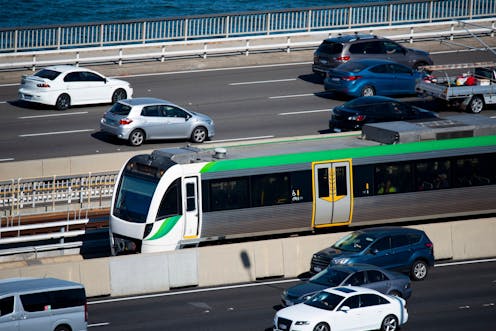National road-user charges are needed – and most people are open to it, our research shows
- Written by Hussein Dia, Professor of Future Urban Mobility, Swinburne University of Technology

The High Court[1] ruled last week that Victoria’s road-user charge for electric vehicle (EV) drivers is unconstitutional. Because the court decided it’s an excise, only the Commonwealth[2] can now impose such a tax.
The Victorian government introduced the controversial[3] distance-based charge in 2021. The court decision will likely derail similar plans by other states[4].
Current road taxes are blunt instruments that don’t reflect the true costs of driving to society[5]. The fuel excise does not properly account for traffic congestion or emissions. It makes no allowance for people’s ability to pay. Car registration fees are also not related to the amount of travel, congestion or emissions produced by driving.
Hence the need for road-user charges. To understand public attitudes to such charges in Australia, we surveyed more than 900 people in Melbourne and Sydney. The results of this research[6] showed a good appetite for road taxation reform in the nation’s two largest cities.
Only about a third of respondents opposed road-user charges to reduce traffic congestion in their cities. And support increased when they were told the revenue would be used to improve traffic infrastructure and public transport. The findings offer insights into how road-user charging could be rolled out successfully across the nation.
Read more: It's good the High Court overturned Victoria's questionable EV tax. But there's a sting in the tail[7]
What do people think about road-user charges?
For our research, we surveyed a representative sample of 929 people (373 in Melbourne and 556 in Sydney) in April 2022 (Melbourne) and November 2022 (Sydney).
A majority of respondents (70% in Sydney and 65% in Melbourne) supported the introduction of measures to reduce traffic congestion in their respective cities.
When specifically asked if they would support road-user charges, only 32% of respondents in both cities opposed the idea. Around 29% of respondents in Sydney and 34% of respondents in Melbourne were undecided.
They were then told the revenue raised would be used to improve all forms of transport infrastructure and services. Levels of opposition and uncertainty fell.

















